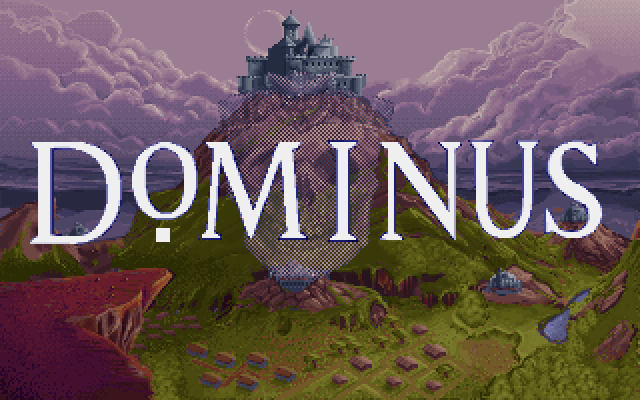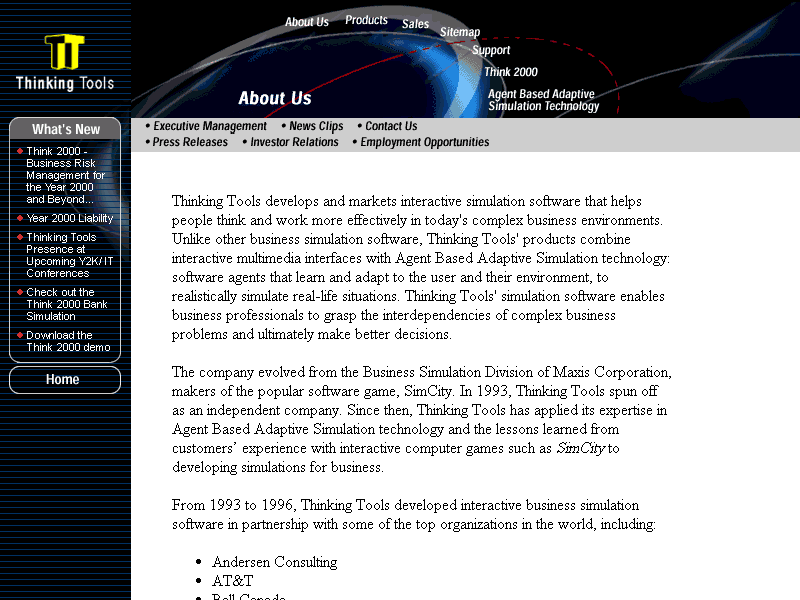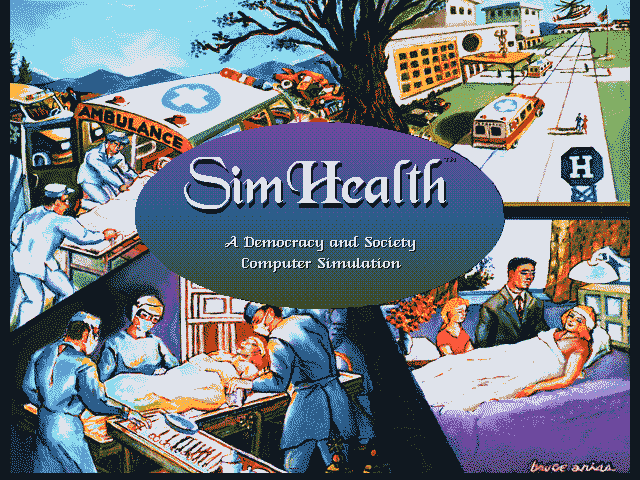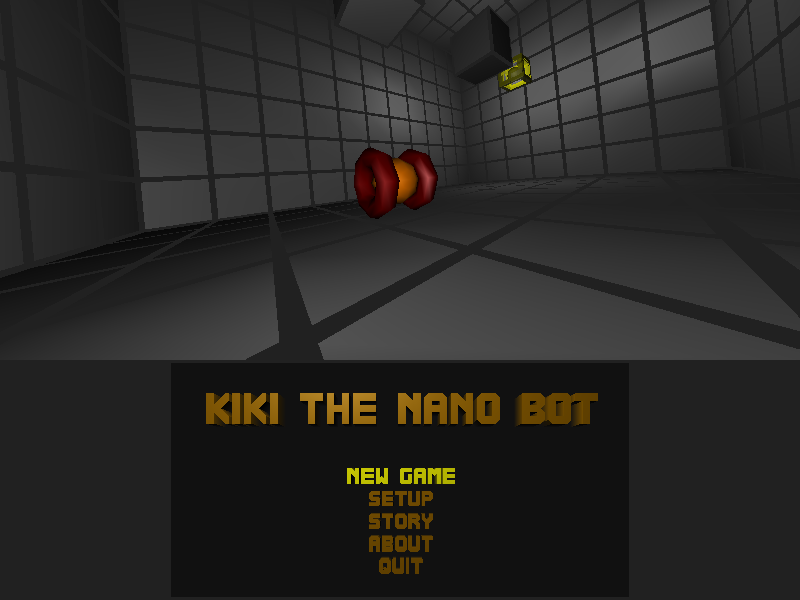Come join The Obscuritory 24-Hour Charity Game Marathon Tea Party! 
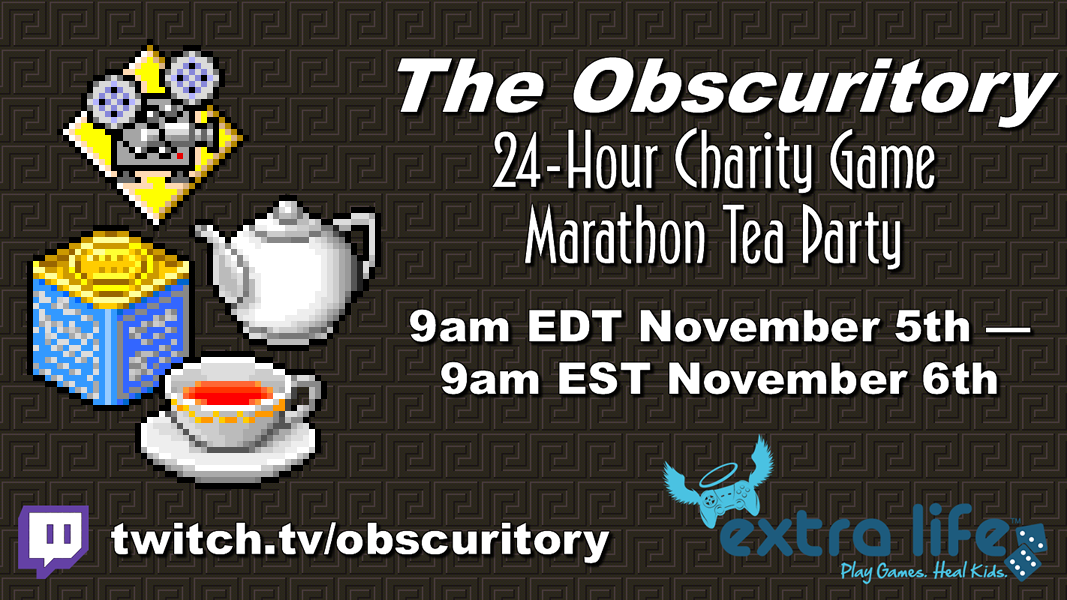
Tea icons by Pixture
In three weeks, on Saturday, November 5th, you are invited to the first annual Obscuritory 24-Hour Charity Game Marathon Tea Party!
So… what is this, exactly?
November 5th is Extra Life, a gaming marathon fundraising event in support of Children’s Miracle Network Hospitals. I’ll be streaming for 24 hours straight in support of the Children’s National Medical Center, the only exclusively pediatric hospital in the Washington, DC area.
In keeping with the mission of The Obscuritory, I’ll be playing multimedia software, shareware CDs, edutainment titles, weird old experiments, and who knows what else while soliciting donations from the wonderful folks at home. My fundraising goal this year is $150, and if we can reach that… I’m going to play an extremely terrible DOS game I made when I was 10 years old. It will be worth it.
And, as the name suggests, I’m going to be drinking a lot of tea to get myself through this. I’m big on black teas (and sometimes herbal, depends), so I’ll be sharing my favorite blends over the course of the day. You’re welcome to drink tea too!
Stay tuned for more info. I’m going to try to block out the 24-hour schedule so people can tune in for specific games. If anyone has any suggestions about what you’d like see streamed, please drop a line!
UPDATE: Here’s a full, tentative schedule of what will be on the stream this weekend. Things kickoff at 9am EDT as my stomach confronts its arch-nemesis, Ballistics. Hope to see you there!
UPDATE 2: I called the stream early because it took a much harder toll on me than I expected, but in 14 1/2 hours, we raised $200 for the Children’s National Medical Center and drank nine cups of tea. This was an excellent event, and I’m overwhelmed by the support. Thank you so much for watching and donating, and I hope everyone had a great time!

